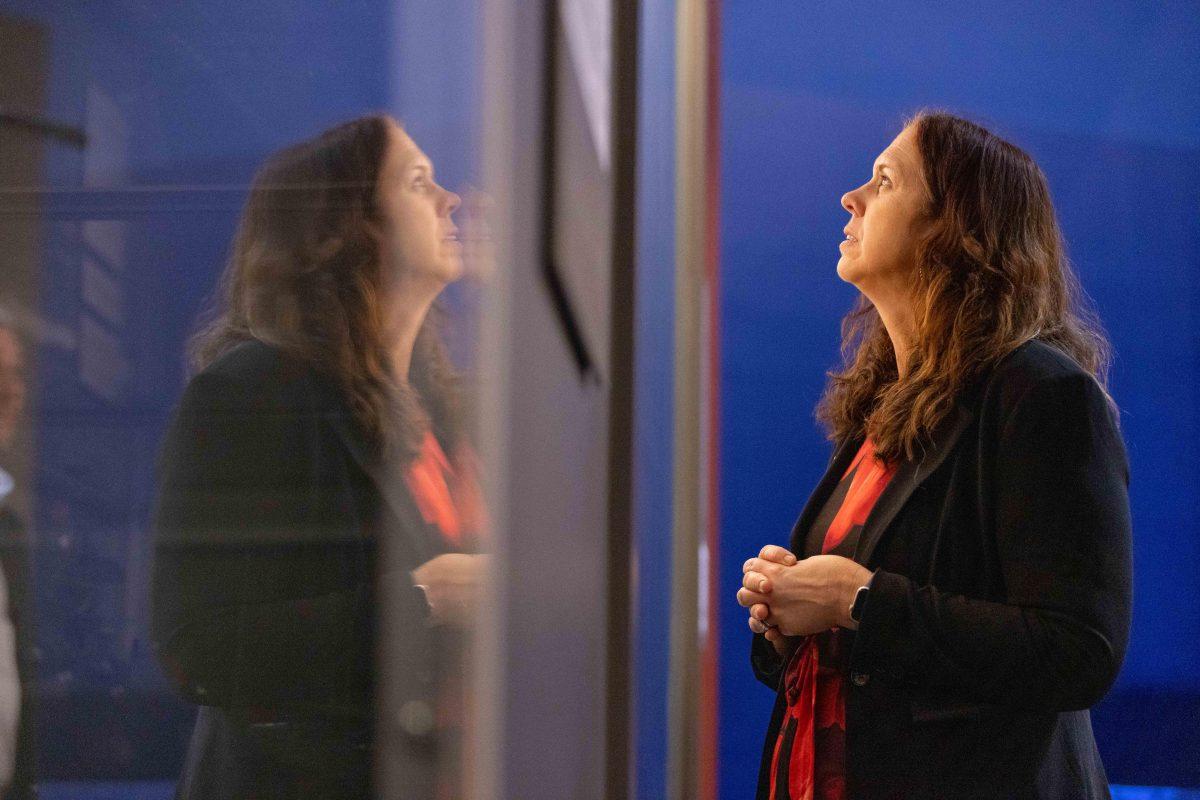On Wednesday, Nov. 15, recently-appointed Archivist of the United States Colleen Shogan, Ph.D., toured the George H.W. Bush Presidential Museum and Library, where she could experience first-hand the importance of these museums and libraries.
Shogan assumed her role in May after being appointed as the first woman to be the National Archivist by President Joe Biden. Prior to her current position, Shogan served in a number of positions on Capitol Hill, such as senior vice president and director of the David M. Rubenstein Center at the White House Historical Association. She has also worked in the U.S. Senate and the Library of Congress.
As the archivist, Shogan is responsible for storing, safeguarding and displaying historical national documents and artifacts within the National Archives and Records Administration, or NARA. The responsibility of America’s Archives is to secure the information, provide resources and inform the public of our history. NARA displays documents such as the Declaration of Independence, Constitution and Bill of Rights in Washington, D.C.
“At the National Archives, we are the record keeper of the United States … we are the place where all of the records of important decisions and moments in U.S. history,” Shogan said.
Shogan said she sees the archives as an essential resource for holding the public and elected officials accountable for their actions.
“All democracies, no matter what format or degree, must have transparency and accountability,” Shogan said. “If you don’t have that in a democracy, you won’t be able to sustain the vitality of democracy for very long because you are cutting off the ability of the citizens to be able to influence their government.”
Shogan said these records are vital to help sustain America’s government.
“Without those records, you can not have accountability,” Shogan said. “Without accountability, you cannot have a healthy, working democracy.”
Recently, Shogan has initiated a promising educational program associated with the National Archives. NARA has begun expanding its programming for education and K-12 teacher resources for American history and civics classes.
“If you are a [student] and you haven’t been over to the Bush Library … you should absolutely do so because this is an amazing resource to learn about an entire era of American history told through the life of President Bush,” Shogan said.
Shogan said she encourages students to help serve our country in any way possible, regardless of the act. For students interested in public service, Shogan noted there is no time or place to get involved, especially because of many current political divisions.
“It can be challenging today when we look at our politics and society because we see a lot of divisiveness,” Shogan said. “However, if you genuinely believe that you have something to offer to our country and nation, whether that’s in running the National Archives like I am doing, I would absolutely encourage [students] to explore that interest.”
For students interested in learning more about the National Archives, Marketing and Communications Director of NARA Amy Raines said there are multiple opportunities to get involved with the agency, such as attending one of the many programs it holds.
Robert Holzweiss, Ph.D., is the Acting Director of the Bush Presidential Library and Museum and explained the process for obtaining new artifacts and documents, which help keep the National Archives alive.
Bush Library and Museum views most donated items, according to its artifact donation guidelines. While not all are accepted if the item has significance regarding the Bush Library and Museum, the item will be considered for display, that is if that individual with the item went through the proper procedures.
“We don’t want people just to drop off the item,” Holzweiss said. “We want people to contact us in advance through bush41.org. There’s contact information based on what department your item may belong to.”
Director of the Office of Presidential Libraries Kara Blond encouraged students to utilize their free admission to the Bush Library and Museum to connect with areas of interest.
“You can take historical examples of foreign policy, immigration, et cetera and compare it to what we see today,” Blond said. “Overall, helping students draw a connection in their everyday life and education.”
The George H.W. Bush Presidential Library and Museum is open from 9:30 a.m. to 5 p.m. Monday through Saturday and 12-5 p.m. on Sunday.










